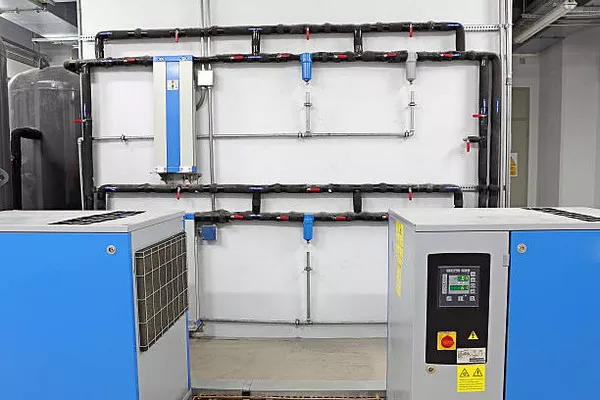As the scorching summer heat approaches, the importance of a well-functioning air conditioning system cannot be overstated. The heart of any AC unit is its compressor, responsible for circulating refrigerant and maintaining optimal cooling. When faced with a malfunctioning or failed compressor, homeowners are often left wondering about the cost implications of a replacement. In this article, we will explore the various factors that contribute to the cost of a new AC compressor and offer insights into making an informed decision.
Types of AC Compressors
Before delving into the cost considerations, it’s essential to understand the different types of AC compressors available in the market. The two main types are reciprocating compressors and scroll compressors. Reciprocating compressors use a piston-cylinder arrangement, while scroll compressors employ spiral-shaped components to compress refrigerant. The type of compressor in your AC unit can influence the cost of replacement, with scroll compressors generally being more expensive than their reciprocating counterparts.
Brand and Model
The brand and model of the AC compressor play a significant role in determining its cost. Well-established and reputable brands often come with a higher price tag due to their commitment to quality, reliability, and advanced technology. Models with additional features such as energy efficiency, noise reduction, and smart capabilities may also contribute to an increased cost. It’s crucial to strike a balance between budget considerations and the long-term benefits offered by a high-quality compressor.
Compressor Size and Capacity
The size and capacity of the AC compressor must align with the cooling needs of your space. An oversized or undersized compressor can result in inefficient operation and increased energy consumption. Larger compressors designed for commercial applications tend to cost more than smaller ones suitable for residential use. It is essential to consult with HVAC professionals to determine the appropriate size and capacity for your specific requirements.
Installation Costs
The cost of a new AC compressor is not limited to the unit itself; installation expenses must also be considered. Hiring a licensed and experienced HVAC technician ensures proper installation, which is crucial for the compressor’s longevity and efficient operation. Installation costs can vary based on factors such as the complexity of the installation, local labor rates, and any additional components or modifications required. It is advisable to obtain multiple quotes from reputable contractors to compare installation costs and make an informed decision.
See Also: Is Replacing the Compressor in Your Car’s AC Unit Worth It?
Warranty Coverage
The warranty offered by the manufacturer is a critical factor influencing the overall cost of a new AC compressor. While compressors with longer warranty periods may have a higher upfront cost, they can provide significant savings in the long run by covering repair or replacement costs within the warranty period. Consider the warranty coverage and associated terms when evaluating different compressor options, as this can impact the total cost of ownership over the compressor’s lifespan.
Energy Efficiency
Energy efficiency is a growing concern for homeowners, not only for environmental reasons but also for reducing energy bills. High-efficiency compressors may have a higher initial cost but can lead to substantial energy savings over time. The Seasonal Energy Efficiency Ratio (SEER) is a metric that measures the efficiency of air conditioning systems, with higher SEER ratings indicating greater efficiency. Assessing the long-term energy savings can help justify the initial investment in a more energy-efficient compressor.
Geographic Location
The cost of a new AC compressor can also be influenced by your geographic location. Different regions may have varying labor rates, material costs, and environmental considerations that impact overall pricing. Additionally, local climate conditions may affect the demand for HVAC services, potentially influencing installation costs. It is advisable to research and consider regional factors when budgeting for a new AC compressor.
Conclusion
In conclusion, the cost of a new AC compressor is influenced by a combination of factors, including the type of compressor, brand and model, size and capacity, installation costs, warranty coverage, energy efficiency, and geographic location. Homeowners should carefully evaluate these factors to make an informed decision that aligns with their budget and long-term comfort goals. Investing in a high-quality, appropriately sized, and energy-efficient AC compressor can enhance the overall performance of the air conditioning system, providing reliable cooling and potential cost savings over its lifespan. Regular maintenance and professional installation are key to maximizing the efficiency and durability of the AC compressor, ensuring a comfortable indoor environment during the hottest months of the year.

